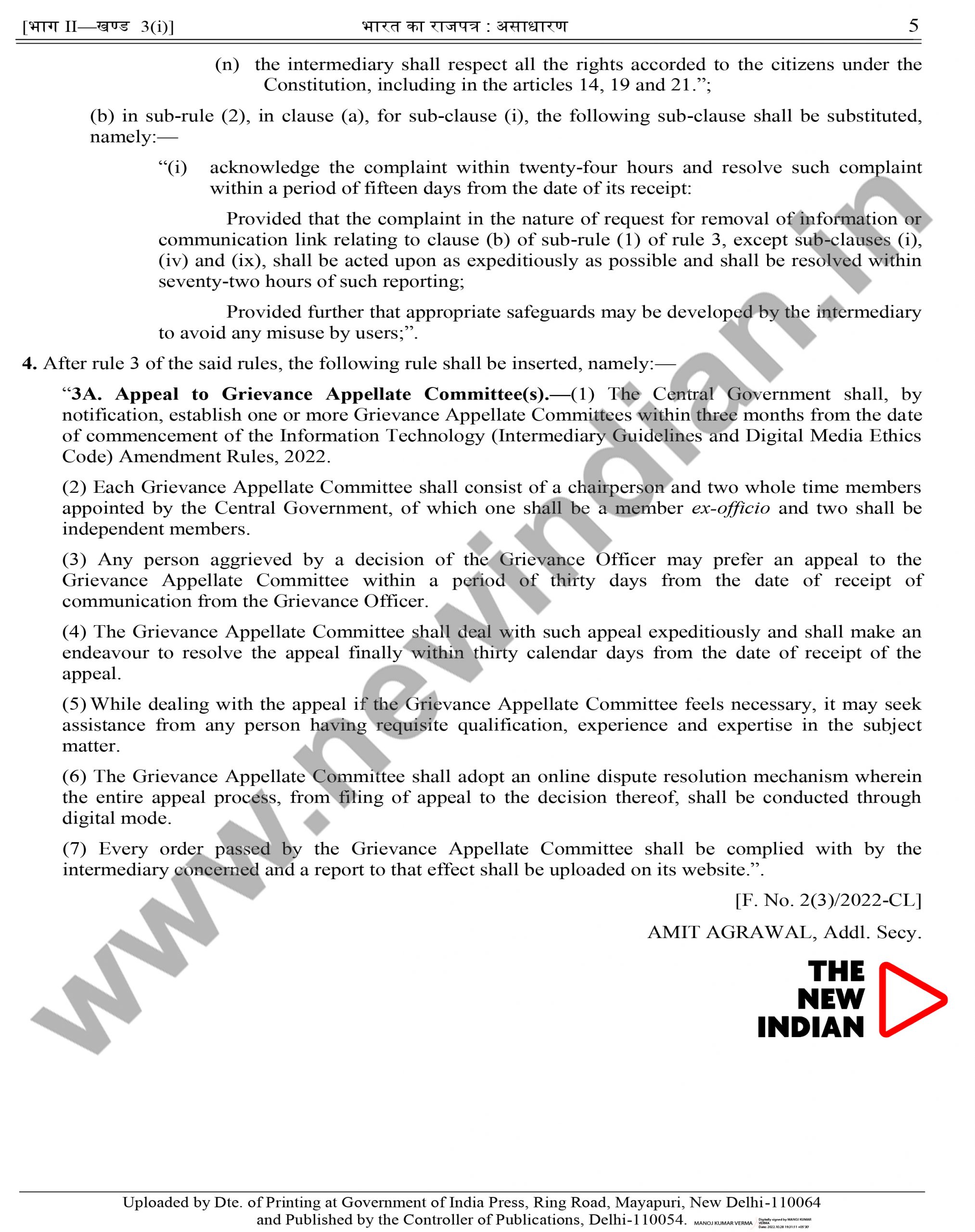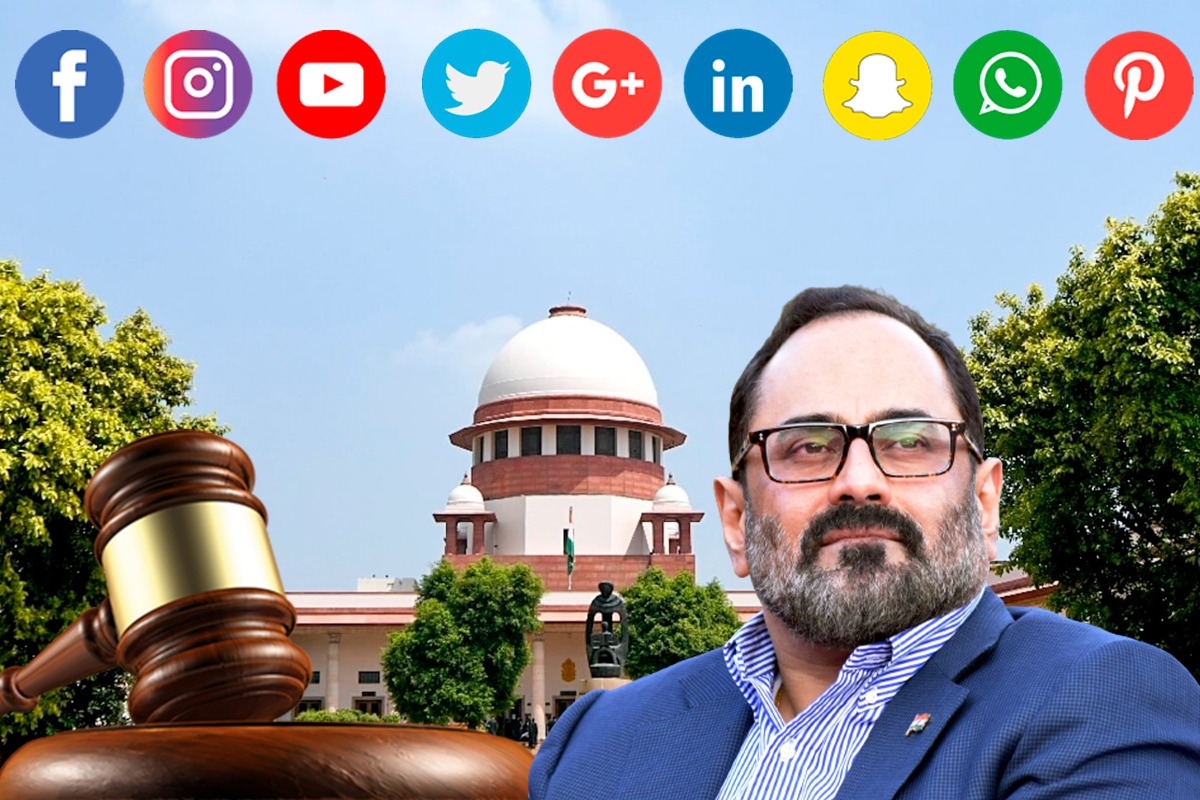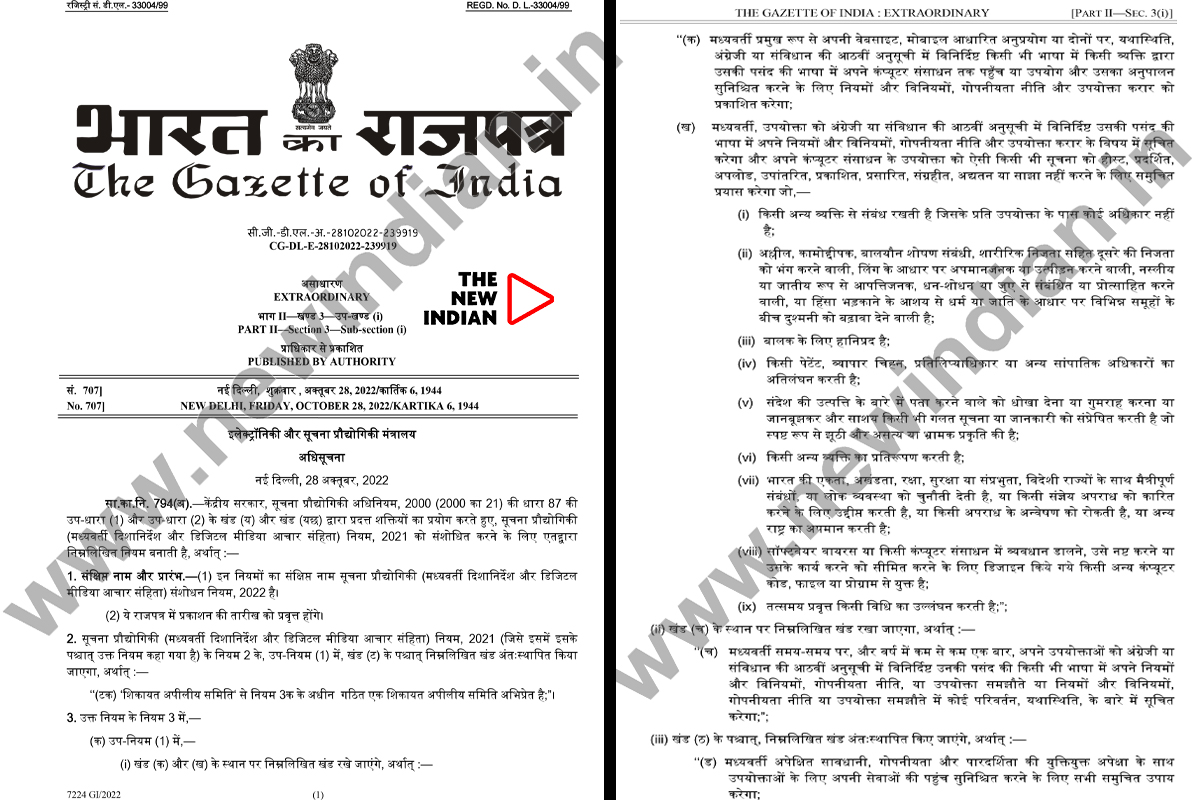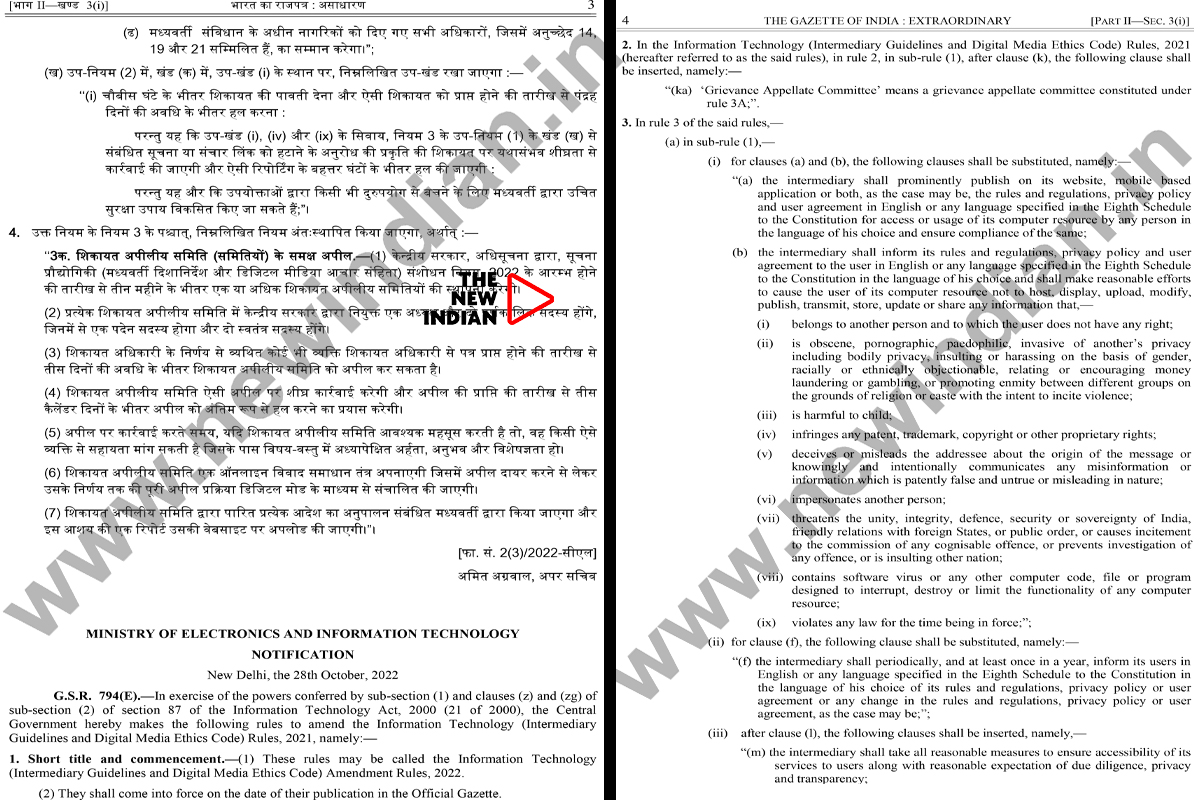In a major decision that comes a day after the social media giant acted tough on its anti-India executives, the government of India amended IT (Intermediary Guidelines & Digital Media Ethics) rules. The new rules make social media compliant with Indian law.
Rajeev Chandrasekhar, Minister of State for Electronics and Information Technology, will brief the media on the decision on Saturday at 11 am.
The amended rules, a copy of which is in possession of The New Indian, make it mandatory for intermediaries like Twitter, Facebook, YouTube, Instagram, etc to comply with the Constitution of India provisions and India’s sovereign laws.
Under new IT rules, those with grievances related to suspensions, blocks, etc, by intermediaries like Twitter, Facebook, YouTube, and Instagram can now approach the three-member Grievance Appellate Committees that will be set up by the centre.
Intermediaries shall have to comply with orders of the Grievance Appellate Committees, according to the notification. The amended rules also provide for an online dispute resolution mechanism.
In an important development, Union Minister of Electronics & Information Technology, Ashwini Vaishnaw tweeted, “Privacy policy and user agreements of intermediary to be made available in the Eighth Schedule Indian languages.”
The decision will help users, who are comfortable in their mother tongue to better understand the agreement.
The 22 languages in the Eighth Schedule include Assamese, Bengali, Gujarati, Hindi, Kannada, Kashmiri, Konkani, Malayalam, Manipuri, Marathi, Nepali, Oriya, Punjabi, Sanskrit, Sindhi, Tamil, Telugu, Urdu, Bodo, Santhali, Maithili and Dogri.

Under the amended IT rules, a social media company, referred to as an intermediary, must ensure that users do not post or share any information that does not belong to them.
The IT rules also put the onus on the intermediary to ensure content posted on its platform is not obscene, pornographic, paedophilic, invasive of another’s privacy, hate speech, promoting illegal activities or threatening “the unity, integrity, defence, security or sovereignty of India”.
ALSO READ: 72 Hrs-15 Days, India Sets Deadline For FB, Insta, Twitter Grievance; More Accountability
Intermediaries are now required to inform their users at least once a year of these rules, regulations and privacy policy.
In the case of a complaint against a post that violates the rules, the intermediaries must acknowledge the report within 24 hours, resolve it in 15 days, and if the complaint contains a request to remove the post, do so within 72 hours.
Anyone who is not satisfied with their complaint’s resolution can approach a GAC within 30 days. The GAC will “make an endeavour” to resolve the appeal in 30 calendar days.
The new IT rules are important and will have a profound impact on intermediaries like Twitter, Facebook, YouTube, Instagram, etc, making them accountable to users and the Indian government. They mark the end of rules framed by Big Tech Raj which sees itself as above sovereign laws, says government sources.












